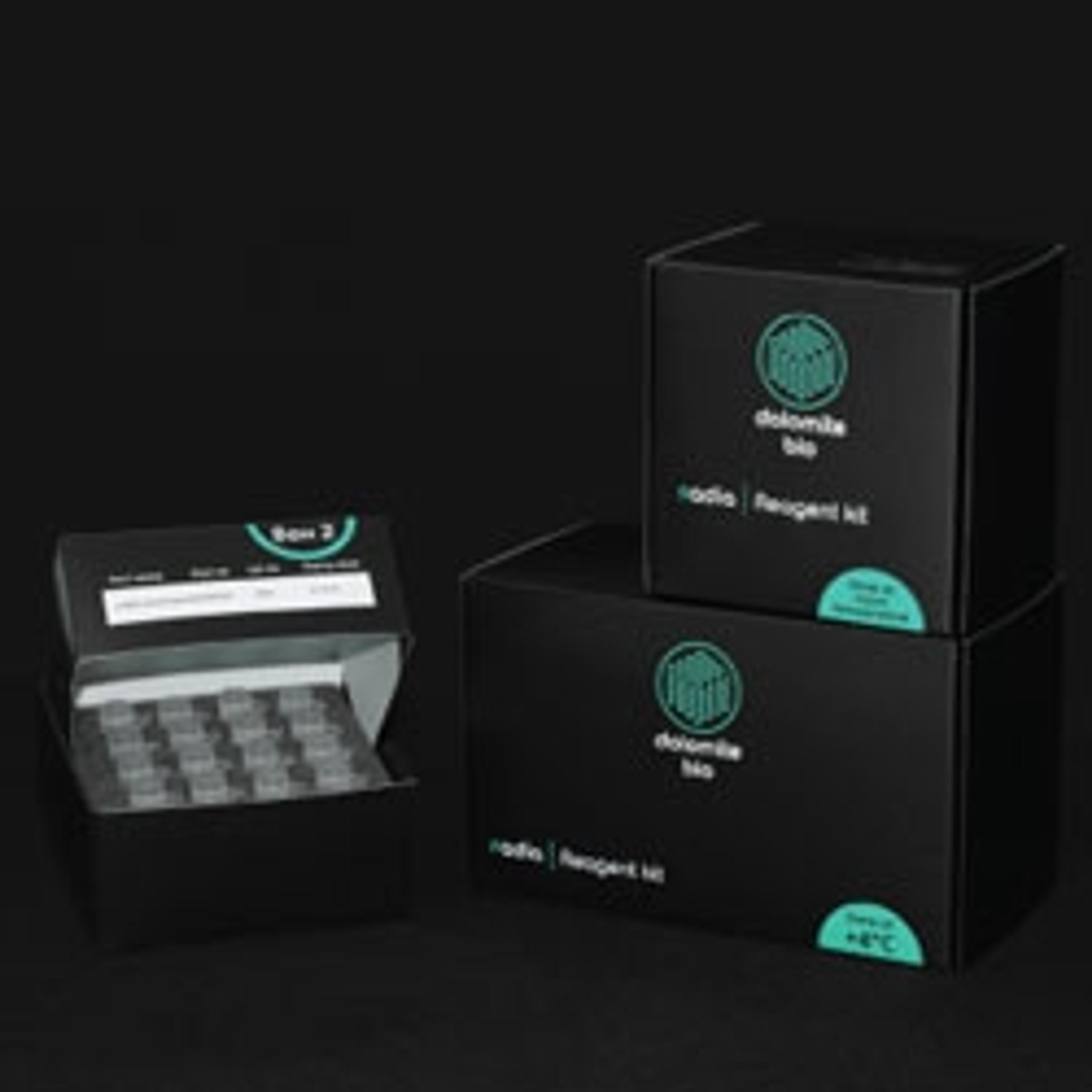Dolomite Bio launches new RNAdia kit, breaking down cost barriers for single-cell research
29 Sept 2021
Dolomite Bio is leading the way towards affordable single-cell research with the release of the new RNAdia kit. This new kit gives researchers the same reliable, world-leading results, at 50% of the cost of competitor reagents. Together with the Nadia platform, the RNAdia kit offers a high-quality, low-cost, complete solution for single-cell RNA-Sequencing.
One of the greatest challenges researchers face is the cost of single-cell workflows. At half the cost, the new RNAdia kit will mean that more scientists can access the rapidly expanding field of single-cell research. Significant savings in reagent cost will enable researchers to run more samples and choose the cell number and sequencing depth they truly need, to push the boundaries of single-cell research even further.
The launch of the RNAdia includes the option to purchase bioinformatic services, in the same way as you would a kit, ensuring easy access to expert data analysis, even if you don’t have an in-house bioinformatician. This provides a complete, seamless solution, from cells to data, in a workflow designed to take even less time than before.
The flexibility of Dolomite Bio’s Nadia platform for high throughput single-cell research, alongside the RNAdia kit and workflow, offers researchers the opportunity to study a wide range of unusual or large cell types, such as plants and cardiomyocytes. Nadia takes scRNA-Seq to the next level by using automation and flexibility to generate high-quality reproducible single-cell data. Encapsulate up to eight samples, in parallel, in under 20 mins, with over 50,000 single cells captured per cartridge in a run. Adding the Nadia Innovate to the Nadia Instrument transforms it into an open system, for the development of novel protocols and applications.
Mark Gilligan, CEO for Dolomite Bio commented: “With the launch of RNAdia, Dolomite Bio aims to break down some of the barriers to single-cell research, such as cost, compatibility, and bioinformatic accessibility, enabling researchers to spend more time making discoveries and less time worrying.”
For more of the latest science news, straight to your inbox, become a member of SelectScience for free today>>

